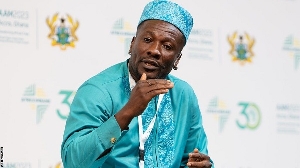The Internal Audit Agency (IAA) has begun processes to block the disbursement of funds to institutions that refuse to submit their audit reports to the agency. Dockets on officers who have breached auditing structures leading to the nation losing money have been prepared and will soon be sent to the Economic and Organised Crime Office (EOCO) and the Attorney Generals’ Department for prosecution.
The agency has also begun to publish the names of institutions that fail to submit their quarterly internal audit reports to the public financial watchdog, in accordance with the law. The IAA believes these measures would ensure the speedy resolution of alleged corrupt practices in the public sector, deter people from such practices and also entrench efficiency and compliance with the law.
Director-General of the IAA, Dr. Eric Oduro Osae, in an interview with the B&FT said: “We are going to prosecute people based on the internal audit report. Henceforth we would not wait for the year to end at a time when the money has already been misused.
We have put in place measures so that every three months when the internal auditors have done their work and detected any infraction, quickly we work with the Economic and Organised Crime Office (EOCO) and other state bodies with the power to prosecute to process them for court.”
He revealed that the agency would by the end of this month publish another list of institutions who have failed to submit audited reports. In November last year, it began to name and shame institution flouting the law leading to the presentation of a letter to the Ministry of Finance to block the funds of recalcitrant institutions.
“We have already started; we have begun naming and shaming institutions for bad audit practices, especially institutions that fail to submit internal audit reports. We have begun publishing the names of these institutions in the papers. We hope that this would help to conscientize institutions about the importance of audit and help save the country some money.
It is important for institutions to submit their audit report to help ensure that they are prudently using state funds on their operation; an institution that would be recalcitrant would be forwarded to the finance ministry for a block to be imposed on future disbursement. This is because the monies that have been allocated to them, they have not been able to account properly so we cannot push more to that institution,” Dr Osae told the paper.
He is optimistic that if the IAA does its job effectively and efficiently the state would be able to save a lot of money and reduce acts of corruption.
The IAA and the Audit Service are required by law to protect the public purse by ensuring that state resources are put to judicious use. The main area of cooperation between the two institutions are for internal auditors to produce internal audit reports to inform the work of the Audit Service (external auditors) at the end of each financial year.
Click to view details



Business News of Tuesday, 11 May 2021
Source: thebftonline.com

















